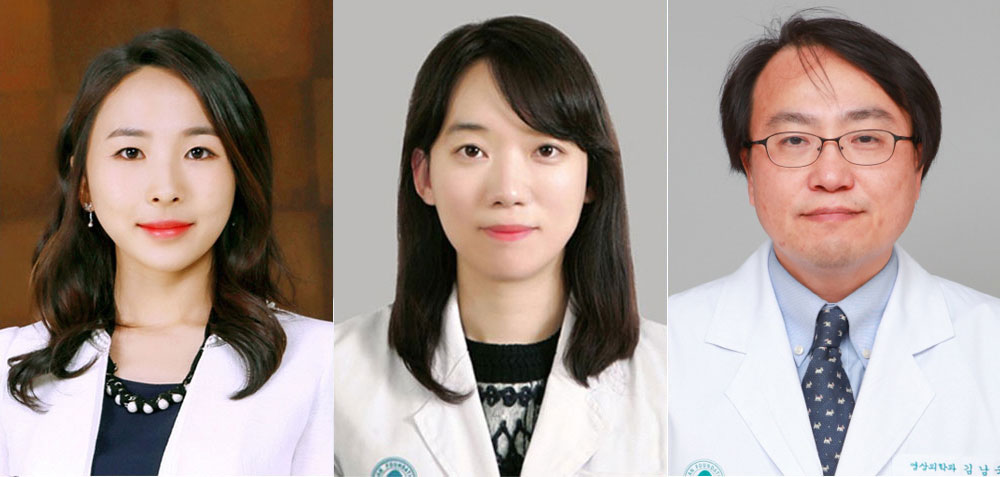-
- Global AMC MENU
- NEWS
- HEALTH
- PEOPLE
- Introduction

▲ (from the left) Professors Hye Hyeon Moon and Ji Eun Park of the Department of Radiology, and Professor Namkug Kim of the Department of Convergence Medicine
Isocitrate dehydrogenase (IDH) mutations are a crucial molecular biomarker determining the prognosis of glioma treatment. Accurate diagnosis of IDH mutations is, therefore, essential for effective treatment. When diagnosing genetic mutations using deep learning, sufficient training and accurate IDH mutation prediction have been challenging using only real-world patient data. A recent study showed that generative artificial intelligence (AI), which creates realistic data, can improve prediction accuracy.
A team led by Professors Hye Hyeon Moon and Ji Eun Park of the Department of Radiology, and Professor Namkug Kim of the Department of Convergence Medicine at Asan Medical Center used generative AI-based augmentation (GAA) to train contrast-enhanced T1 and FLAIR MRI images of 565 glioma patients diagnosed between August 2008 and September 2020. Based on this, GAA generated similar images of glioma with high realism and diversity. It was also demonstrated that the IDH mutation prediction accuracy was optimized when the number of generated images reached 110,000.
The research team performed internal and external validations using data from 119 and 108 patients, respectively. The results showed an accuracy rate of 93.8% internal and 83.3% external, which was higher than that of neuroimaging specialists in their 8th year of career (86.4% internal, 81.9% external) and 2nd year of career (79% internal, 74.3% external).
The study findings were recently published in the world’s leading neuro-oncology journal, ‘Neuro-Oncology.’












